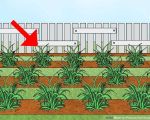How to Reduce Lawn Pests with Eco-Friendly Solutions
As a long-time lover of gardening and outdoor living, I've always sought to maintain a lush, green lawn that’s free from harmful pests. However, like many homeowners, I’ve faced the constant challenge of keeping pests at bay. After experimenting with various pest control methods, I quickly realized that while conventional pesticides could offer quick fixes, they came with long-term environmental consequences. I decided it was time to look into eco-friendly solutions that would reduce lawn pests naturally, without harming the environment or my health.
In this article, I’ll walk you through some of the most effective and sustainable methods for controlling lawn pests. Whether you’re dealing with grubs, ants, or ticks, these organic techniques will help keep your lawn healthy and pest-free, while being kind to the planet.
1. Understanding Lawn Pests and Their Impact
Before diving into eco-friendly solutions, it’s important to understand the types of lawn pests that commonly affect gardens and lawns. I’ve learned that different pests require different approaches, and identifying the problem early on can make a big difference. Common lawn pests include:
- Grubs: These larvae feed on the roots of grass, causing brown patches and thinning in the lawn.
- Aphids: Small, soft-bodied insects that feed on plant sap and can spread diseases.
- Ants: While ants don’t typically harm grass directly, they can damage your lawn by nesting and disturbing the soil.
- Chinch Bugs: These bugs suck the sap from grass, leaving yellow patches on your lawn.
- Ticks: A dangerous pest that can spread diseases like Lyme disease and is common in tall grass areas.
As I’ve come to realize, these pests not only damage the aesthetics of your lawn but can also pose risks to your health and the local ecosystem. I wanted to avoid using toxic chemicals, so I began researching safer, more sustainable methods for pest control.
2. Natural Predators: Letting Nature Do the Work
One of the most effective and eco-friendly methods I discovered for controlling lawn pests is by introducing natural predators. These beneficial insects can help reduce the number of harmful pests without requiring any chemicals. Here are a few predators that I’ve found to be particularly helpful:
- Ladybugs: These small beetles are voracious predators of aphids and other soft-bodied pests. I’ve released ladybugs into my garden and watched them feast on aphids, leaving my plants unharmed.
- Nematodes: Beneficial nematodes are microscopic worms that can be applied to the soil to target grubs. They parasitize and kill the grubs without harming your lawn.
- Predatory Mites: These tiny creatures attack aphids and other pests, helping to control populations naturally. They can be applied to infested areas of your lawn.
By introducing these natural predators, I’ve noticed a significant reduction in pests, and my lawn has become healthier overall. This method not only controls pests but also promotes biodiversity and a balanced ecosystem in your garden.
3. Organic Treatments: Using Nature’s Tools
For more stubborn pests that don’t respond to natural predators, organic treatments can offer an effective solution without resorting to harsh chemicals. Over the years, I’ve used several eco-friendly products that have proven to be both safe and effective. Here are some options I’ve personally used:
- Neem Oil: This natural insecticide is derived from the neem tree and works by disrupting the life cycle of pests. It’s especially effective against aphids, caterpillars, and whiteflies. I’ve applied neem oil directly to my plants and grass, and it’s kept pest populations under control.
- Diatomaceous Earth: A fine powder made from the fossilized remains of algae, diatomaceous earth works by drying out the exoskeletons of insects like ants, fleas, and grubs. It’s safe for pets and people but deadly to pests. I’ve sprinkled it around my garden beds and lawn with great success.
- Insecticidal Soap: This soap-based solution is effective against soft-bodied insects like aphids, spider mites, and mealybugs. I’ve used it to target specific areas of my lawn and plants where pests have been problematic.
These organic treatments are not only effective but also safe for the environment, pets, and children. I’ve found that using a combination of these products, along with regular maintenance, helps to keep my lawn pest-free without the need for toxic chemicals.
4. Maintaining a Healthy Lawn to Prevent Pest Infestations
One of the best ways to reduce lawn pests is by maintaining a healthy lawn in the first place. A strong, healthy lawn is much more resistant to pests and diseases. I’ve learned that by focusing on proper lawn care, I can reduce the likelihood of pest infestations. Here’s what I’ve done to keep my lawn healthy:
- Proper Mowing: I keep my grass at the recommended height for my grass variety. Mowing too short weakens grass and invites pests like grubs and ants.
- Fertilizing Organically: I use organic fertilizers that provide essential nutrients without promoting rapid growth, which can attract pests.
- Watering Wisely: I avoid over-watering, which can create a haven for pests like mosquitoes and fungus. Instead, I water deeply and less frequently, encouraging deeper root growth and a stronger lawn.
- Thatching and Aerating: Regularly dethatching and aerating my lawn helps improve soil health, allowing grass to grow thick and strong, making it less inviting to pests.
By following these lawn care practices, I’ve noticed fewer pest issues overall, as a healthy lawn naturally deters pests. Healthy grass can outcompete weeds and provide a tough environment for pests to thrive.
5. Homemade Eco-Friendly Solutions: DIY Pest Control
For those who prefer a more hands-on approach, homemade eco-friendly pest control solutions can be a great option. I’ve found several DIY methods that are both effective and safe for the environment. Here are a few homemade remedies that I’ve used:
- Garlic and Pepper Spray: A mixture of garlic, hot pepper, and water can act as a natural deterrent for many pests. I’ve blended these ingredients and sprayed them on plants to keep aphids and other insects at bay.
- Citrus Oil Spray: Citrus oils, especially orange or lemon oil, can be mixed with water and used as a natural pesticide. I’ve applied this mixture to my lawn to deter ants and other pests.
- Soap and Water Solution: A simple solution of dish soap and water can help kill pests like aphids and spider mites. I’ve sprayed this mixture directly on affected areas, and it’s worked well in reducing pest numbers.
These homemade remedies are easy to make, inexpensive, and effective in controlling a variety of lawn pests. I’ve found that they’re a great way to reduce reliance on store-bought pesticides while still keeping pests under control.
By using eco-friendly solutions, I’ve not only been able to reduce lawn pests but also create a healthier environment in my yard. These methods are not only safer for my family and pets but also contribute to a more sustainable ecosystem. If you’re looking to reduce pests in your lawn naturally, I encourage you to try these eco-friendly solutions and watch your lawn thrive!
For more information on sustainable lawn care and pest management, visit Lawn Care Services for expert tips and recommendations.








